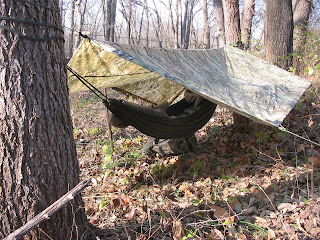Field Expedient Slugs

Based on the amount of mail I have received about the field expedient slugs we created for the shotgun course, I thought I’d give y’all a quick explanation.
There are a couple times when you want a slug for a shotgun – one is penetration. A slug will go through a much denser barrier than will shot – the smaller the shot size, the less of a barrier it will penetrate. Another time you may need a slug is when you want to make a precise shot – say into the head of a bad guy holding a hostage. It just wouldn’t do to pepper (in this case) the little girl in order to “save” her.
There is a technique called scalloping whereby you hold off to the side of your intended target and only hit it with the outer edge of your pattern. Nice theory but it doesn’t always work out in practice and you cannot account for the wad. A plastic wad can penetrate 1/4” plywood at room distances and it never flies to the same place. I wouldn’t want my daughter to have to absorb that energy with her face, or eye. So sometimes a single projectile – in this case a slug - is called for.
I told the students to bring slugs to the class. One failed to do so. No problem, it created a good learning opportunity for what I call a field expedient slug. Others call them “ringed rounds”, “cut down shells” and so on. I think it was invented a long time ago by folks who couldn’t afford slugs to hunt deer with (they are more expensive than bird shot by a long shot); or maybe it was some good ol’ boy out dove hunting and he saw something that just cried out for a slug strike. In any case, I learned it a long time ago at a mysterious place called Mott Lake and now I reckon I’ll teach you.
Know this up front though: I am not telling you to do this. I am not saying this is safe. It may be extremely unsafe. It may void the warranty of your shotgun. For all I know, it could cause your gun to blow up. You could cut yourself. You could somehow (who knows?) ignite the powder. Consult a professional before you even CONSIDER doing something like this. This is just FOR INFORMATION PURPOSES ONLY.
A shotgun shell is made up of the brass cup which holds the primer and the gun powder. Above that is a plastic wad and shot cup. The wad is about ¾ inch long or less and the cup is just thin plastic wings which contain the shot inside the shell. The primer ignites the powder; the powder burns very quickly creating gas; the gas expands and forces the wad away from the breech; the wad pushes the cup containing the shot through the end of the crimped shell and down range. The wad usually flies about 10 yards or so and then just falls to the ground while the shot continues down range.
What you do is cut around the plastic hull where I marked it on the intact shell. A serrated blade works best. Cut all the way through the hull to the wad but leave two tabs opposite each other connecting the top of the hull to the bottom. This round is a bit more fragile than an intact slug but you can load it without difficulty.
When you fire it, instead of the wad pushing the shot out of the end of the crimped hull, the hull separates at the tabs and the intact upper hull containing the shot moves out down range.
The important thing is it moves out as a single projectile – not multiple pieces of lead shot. The other important thing is it hits as a single mass in a single point - thus allowing greater penetration than the shot would by itself. It will not hold together like a slug once it does impact so you won’t get the same penetration performance out of a field expedient slug – but it is impressive when compared to the shell it was created from.
For our use though, we needed a single projectile for a precise hit and as you can see from the photo in the blog entry below – it worked.
Sometimes it doesn't extract quite as well as full sized round does. You can see the remenant of one there on the right - it even has a tab still on it. So for those who wanted to know - there ya go!
Then Jael Heber's wife took a nail of the tent, and took an hammer in her hand, and went softly unto him, and smote the nail into his temples, and fastened it into the ground: for he was fast asleep and weary. So he died. Judges 4:21
.................................................................................
If you have any comments I’d love to hear them.
If they really interest me, I may even post them.
You can reach me at Joe
You can also join us to discuss this and other issues at Viking Preparedness Forums
Prepared Americans for a Strong America















